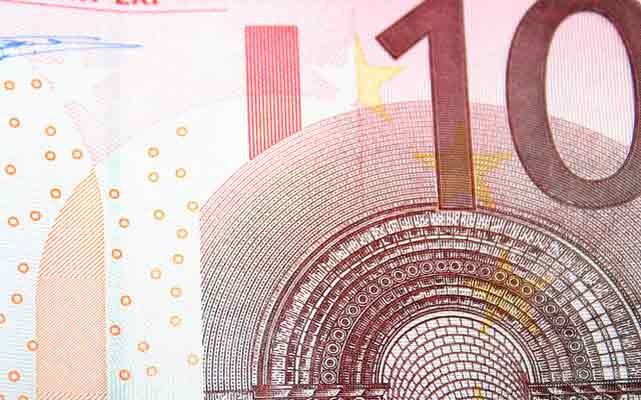Pound-to-Euro News, Forecast: GBP Dips, Recovers on UK GDP Miss
- Written by
David Woodsmith

The Pound to Euro exchange rate (GBP/EUR) dipped and then recovered to 1.1323 on Thursday after UK GDP growth slowed to 0.1% in the three months to September, which was weaker than the forecasted 0.2% growth.
Pound Sterling remains under pressure near 30-month lows, with renewed political tensions in Westminster and rising expectations of a December Bank of England rate cut keeping investors cautious.
The Pound has been subjected to renewed pressure in global currency markets with a fresh outbreak of political speculation adding to underlying concerns over UK fundamentals.
The Pound to Euro (GBP/EUR) exchange rate dipped to lows just below 1.1330 and close to 30-month lows of 1.1325 registered last week.
According to ING; “Sterling already has enough negative news from the tighter fiscal/looser monetary policy story to keep it weak. But political noise could push EUR/GBP to new highs for the year in the 0.8870/8900 area. (Losses to 1.1240 for GBP/EUR)”
MUFG maintains a target of 1.1240 for GBP/EUR.
Sterling has been unsettled by renewed political concerns, which have amplified underlying unease over fiscal and monetary policy.
Overnight, there were strong briefings from Downing Street that Prime Minister Starmer would fight aggressively against any challenge to his leadership.
The briefing has intensified speculation that Starmer could face a near-term challenge, potentially just after the budget, while there is widespread anger within the Labour Party.
Fiscal credibility and long-term budget pressures will remain a key element with markets watching the bond market closely.
The 10-year yield increased to 4.43% on Wednesday from below 4.40% yesterday and a a further jump in yields would risk undermine Pound sentiment.
ING commented; “Even though Starmer's approval ratings are very poor, his removal would create some doubt about the future of Chancellor Rachel Reeves and add some risk premium to UK asset markets.”
Following Tuesday’s labour-market data with unemployment increasing to a fresh 4-year high, speculation over a near-term Bank of England rate cut has increased.
Markets are now pricing in close to a 70% chance of a move at the December policy meeting.
According to Danske Bank; “the data supports our call for a December rate cut from the BoE.”
Jeffries economist Modupe Adegbembo commented; "Markets still underestimate the depth of the Bank's potential easing cycle."
She added; "Given the weakness in the labour market and the additional fiscal tightening likely to be delivered by the Chancellor, we expect the BoE to bring (the) Bank Rate down to around 3% (which now stands at 4%)."
STORY LINK Pound-to-Euro News, Forecast: GBP Dips, Recovers on UK GDP Miss

The Pound to Euro exchange rate (GBP/EUR) dipped and then recovered to 1.1323 on Thursday after UK GDP growth slowed to 0.1% in the three months to September, which was weaker than the forecasted 0.2% growth.
Pound Sterling remains under pressure near 30-month lows, with renewed political tensions in Westminster and rising expectations of a December Bank of England rate cut keeping investors cautious.
GBP/EUR Forecasts: Near 30-Month Lows
The Pound has been subjected to renewed pressure in global currency markets with a fresh outbreak of political speculation adding to underlying concerns over UK fundamentals.
The Pound to Euro (GBP/EUR) exchange rate dipped to lows just below 1.1330 and close to 30-month lows of 1.1325 registered last week.
According to ING; “Sterling already has enough negative news from the tighter fiscal/looser monetary policy story to keep it weak. But political noise could push EUR/GBP to new highs for the year in the 0.8870/8900 area. (Losses to 1.1240 for GBP/EUR)”
MUFG maintains a target of 1.1240 for GBP/EUR.
Save on Your GBP/EUR Transfer
Get better rates and lower fees on your next international money transfer. Compare TorFX with top UK banks in seconds and see how much you could save.
Overnight, there were strong briefings from Downing Street that Prime Minister Starmer would fight aggressively against any challenge to his leadership.
The briefing has intensified speculation that Starmer could face a near-term challenge, potentially just after the budget, while there is widespread anger within the Labour Party.
Fiscal credibility and long-term budget pressures will remain a key element with markets watching the bond market closely.
The 10-year yield increased to 4.43% on Wednesday from below 4.40% yesterday and a a further jump in yields would risk undermine Pound sentiment.
ING commented; “Even though Starmer's approval ratings are very poor, his removal would create some doubt about the future of Chancellor Rachel Reeves and add some risk premium to UK asset markets.”
Following Tuesday’s labour-market data with unemployment increasing to a fresh 4-year high, speculation over a near-term Bank of England rate cut has increased.
Markets are now pricing in close to a 70% chance of a move at the December policy meeting.
According to Danske Bank; “the data supports our call for a December rate cut from the BoE.”
Jeffries economist Modupe Adegbembo commented; "Markets still underestimate the depth of the Bank's potential easing cycle."
She added; "Given the weakness in the labour market and the additional fiscal tightening likely to be delivered by the Chancellor, we expect the BoE to bring (the) Bank Rate down to around 3% (which now stands at 4%)."
International Money Transfer? Ask our resident FX expert a money transfer question or try John's new, free, no-obligation personal service! ,where he helps every step of the way, ensuring you get the best exchange rates on your currency requirements.
TAGS: Pound Euro Forecasts
Comments are currrently disabled
Related Stories:
- British Pound to Euro Forecast: GBP Drifts Lower After Strong New-Year Rally - January 8, 2026
- Pound Euro Steady Despite Cooling Inflation - January 8, 2026
- British Pound to Euro Forecast: Has GBP Rallied Too Fast Against EUR? - January 7, 2026
- Pound Sterling Hits Best Euro Rate of Three Months Amid Greenland Jitters - January 7, 2026
- Pound-to-Euro Forecast: GBP Jumps to 10-Week Best EUR Rates - January 6, 2026
- British Pound to Euro Forecast: GBP Advances amid Russia-Ukraine Uncertainty - January 5, 2026
- Pound-to-Euro Week Ahead Forecast: Markets Weigh 2026 UK Prospects - January 5, 2026
- Pound to Euro Exchange Rate 2025 REVIEW: First Annual Loss Since 2022 - December 30, 2025
- British Pound to Euro Forecast: GBP Recovers After Peace-Led EUR Rally - December 30, 2025
Latest News:
- Pound Sterling to Dollar Forecast: Can GBP Break Higher as USD Backing Fades? - January 8, 2026
- British Pound to Euro Forecast: GBP Drifts Lower After Strong New-Year Rally - January 8, 2026
- GBP/USD Forecast: Pound Sterling Capped below $1.35 on Services PMI - January 8, 2026
- Pound Euro Steady Despite Cooling Inflation - January 8, 2026
- British Pound to Euro Forecast: Has GBP Rallied Too Fast Against EUR? - January 7, 2026
- Pound-to-Dollar Forecast: GBP/USD Near Breakout, But Risks Remain - January 7, 2026
- Pound Sterling to Dollar Forecast: GBP Pulls Back after Weak UK Services Data - January 7, 2026
- Pound Sterling Hits Best Euro Rate of Three Months Amid Greenland Jitters - January 7, 2026
- Pound-to-Euro Forecast: GBP Jumps to 10-Week Best EUR Rates - January 6, 2026
- Euro-to-Dollar Forecast: Will EUR/USD Repeat 2025’s Strong Start? - January 6, 2026









